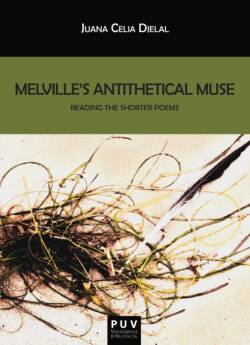Melville's Antithetical Muse

Реклама. ООО «ЛитРес», ИНН: 7719571260.
Оглавление
Juana Celia Djelal. Melville's Antithetical Muse
Отрывок из книги
MELVILLE’S ANTITHETICAL MUSE
READING THE SHORTER POEMS
.....
Poet-critic Aaron Kramer, in his introductory essay to Melville’s Poetry: Toward the Enlarged Heart: A Thematic Study of Three Ignored Major Poems (1972), celebrates the poetry, applauding the rich annotations of other critics, but decrying their failure to evaluate the poems. Other book-length evaluative readings include: William Bysshe Stein, The Poetry of Melville’s Later Years (1970), William H. Shurr, The Mystery of Iniquity (1972), and Stan Goldman, Melville’s Protest Theism: The Hidden and Silent God in Clarel (1993). A Critical Guide to Herman Melville: Abstracts of Forty Years of Criticism (Bowen and Vanderbeets, 1971) provides seven abstracts of the poetry, accounting for five out of one hundred and two pages of abstracts; the bibliography lists eighteen entries for the poetry, one page out of the total twenty-four. Of the four books just mentioned and an array of articles of widely-varying insight, perhaps half a dozen offer close, informed, and helpful readings of the poetry.3 It may be that the enormous body of scholarship on the prose has not only dwarfed the possibility of examining the poetry closely and seriously, but has mitigated the spirit of critical examination of this “lesser” expression, maligned in its early reception.
The most common engagement with Melville’s poetry takes the form of sweeping statements not sufficiently grounded in a close examination of the poetry. Though often generous in their brief assessment, these statements are necessarily limited by the writers’ focus on the issues under discussion, to which the poetry remains incidental. To reiterate, in commentaries on writings of the nineteenth century, notably the Civil War and its spawned grief and greed, Melville is seen as “the poet of outrage of his century in America” (Rukeyser 86), or viewed as having progressed into silence, in one instance with only a terse comment about what one suspects are unread poems: “Nor is there any reason to believe that his poetry would have earned survival had it not been for interest in him as a novelist” (Lebowitz 206).
.....